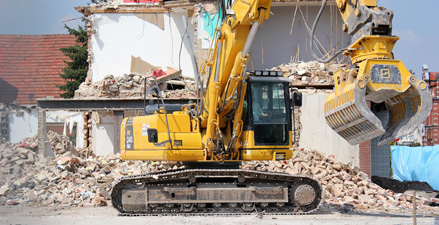What is a condemnation appraisal?It's not just a good idea -- and it's not just the law -- it's your constitutional right that if the government wants to condemn your property, or take it from you by means of "eminent domain," it must give you "just" compensation. That's where we come in. The government is likely to have its own idea of "just" compensation, typically based on a professional appraisal. But a second opinion appraisal, performed under the standards of the Uniform Standards of Professional Appraisal Practice (USPAP), is powerful -- and useful -- evidence of what you're entitled to, and protects your rights. It works the other way, too. We perform work for government clients needing to offer and provide "just" compensation in eminent domain cases. A USPAP-compliant appraisal is the best way to determine fair market value of any property. Our clients include the city of Topeka, Shawnee County, Kansas Supreme Court, utility companies, and condemnation attorneys. Condemnation appraisals are generally more complex assignments. There are many legal and procedural issues involved in an accurate condemnation appraisal. A federal condemnation will require a different analysis and report format than a state or local taking. And in any event, the jurisdiction proposing to condemn the property is likely to have its own rules for appraisal that must be followed. It is important to hire an appraisal firm that has experience and training in these types of valuations. An eminent domain action may reserve certain rights in the property to the current owner. The government may petition to take only part of, or a partial interest in, the property. This requires the appraiser to value the "larger parcel" - the currently undivided, contiguous property - and the "remainder" of the property, or rights to use the property, that will be held by the owner after condemnation and factor that into the overall value of the taken property. For an added wrinkle, there may be temporary easements that need to be valued. It will often be necessary for the appraiser to determine the opinion of value on the property before the taking and the value of the remainder after the taking, because they are likely to be very different. Likewise, appraisers always consider a property's "highest and best use" when formulating an opinion of value. For many condemnation appraisals, it is necessary to consider the highest and best use of the property before taking and after the development or use resulting from the taking. Again, it is important to have a professional appraiser with experience and training. Because an appraiser may often have to testify about his or her condemnation appraisal, it is important that certain steps in valuation methodology -- such as selecting and analyzing comparable sales -- be performed more thoroughly. You rely on your appraiser to know what's necessary, so again, it's important to select an appraiser/company that has experience and training.
Why do I need an experienced appraiser?Condemnations are complicated and have a big impact on property owners, so it’s important to hire an appraiser with experience in condemnation appraisals. A federal condemnation has different requirements than a state or local condemnation, and even jurisdictions proposing to condemn the property usually have their own appraisal rules—so you shouldn't take a chance on an appraiser that isn’t familiar with the specific rules, analyses, and format required. Some eminent domain cases only require certain pieces of a property, rather than the entire plot of land—and these cases can get complicated. The appraiser must estimate the value of the "larger parcel" of land—the property that the government is acquiring—and the "remainder" of the property—the property that the current owner will keep after the condemnation. Because a large, continuous plot of land typically has a higher value per square foot than a small piece of land wedged between two occupied plots, estimating the value can be tricky. In other cases, the current owner of the eminent domain property still has rights or partial rights to use the land, which can also muddle the valuation process. Each of these scenarios requires the expertise of a seasoned appraiser that’s familiar with how government seizure affects property value. Appraisers always consider a property's "highest and best use" when estimating the value. For many condemnation appraisals, the highest and best use of the property needs to be determined both before the condemnation, and again after it's been developed by the government, since the conclusion can change significantly when the land’s use changes and structures are added or removed. Again, these situations require the knowledge of an expert appraiser that fully understands the "highest and best use" of land and how it fluctuates. Because appraisers often have to testify about their condemnation appraisals, certain steps in the valuation process—like selecting and analyzing comparable sales (comps)—must be thoroughly considered. Since you rely on your appraiser to know what's appropriate and necessary for an accurate appraisal, it's important to select an appraiser that has extensive experience and training. Here at Keller, Craig and Associates, Inc., we have the qualifications and experience necessary to perform your condemnation appraisal accurately, equipping you with solid support for the "just" compensation you're entitled to. If you're ready to order an eminent domain appraisal, click here. 
|
Got a Question?
Do you have a question relating to real estate appraisals? We can help. Simply fill out the form below and we'll contact you with the answer, with no obligation to you. We guarantee your privacy.